![]()
York University is looking to engage faculty members with expertise and interest in the UN Sustainable Development Goals (SDGs) to provide advice and supports to student project teams participating in the SDGs in Action Challenge as a mentor.
Roles and responsibilities of Faculty and SDGs Mentors
The SDGs mentors will work with the Project Working Group(s) in the implementation of the Go Global SDGs in Action Student Challenge 2023-24.
Choose one of the Mentor-duty Options below:
OPTION 1Deliver SDGs workshop
|
OPTION 21. Mentor student projects |
OPTION 3:
OPTION 1 + OPTION 2
Confirm Your Interests
- Attend the Faculty information session on July 14, 2023, at 10AM (Zoom)
- Click here to apply as Faculty and SDG Mentors by July 31, 2023 (Apply now)
Project Overview and Timelines
WEEK OF SEP. 3 - Acceptance notification and receive welcome package
EXPLORE
| TIME | DETAILS |
| Oct. 10, 2023 | Student Orientation | Workshop 1: Introduction to UN SDGs and SDG17 | Community-Based Collaborative Action Session
|
| Oct. 11, 2023 | SDG 2 & 10 Workshops by York and Partner Mentors *Students required to attend 2 out of 4 SDG Workshops and the 2 workshops on project management and community engagement.
|
| Oct. 12, 2023 | SDG 12 & 16 Workshops by York and Partner Mentors *Students required to attend 2 out of 4 SDG Workshops and the 2 workshops on project management and community engagement.
|
| Oct. 13, 2023 | Workshops by FES Working in teams/Project Management/Ethical community engagement
|
ENGAGE
| Starting Oct. 14 | Group work, project development and implementation
|
| Oct. 25, 2023 | Deadline to Project Proposal and Ethics application (if required) |
| Nov. 1, 2023 | Attend the Project Midway Check-ins Meeting |
| Nov. 25, 2023 | Deadline Project Submission |
EXEMPLIFY
| Nov. 26 - Dec. 4, 2023 | Award Review and Selection
|
| Dec. 6, 2023 |
Knowledge Fair: project presentation & announcement of SDG awards [Link] Note: Students can continue to use seed funding in winter term 2024 |
EXPERIENCE
| Dec. 8, 2023 | Drop in virtual post-experience form session |
| Dec. 13, 2023 | Feedback to the 2023-24 SDGs in Action and receive Certificate of Participation |
| Before April 2024 | Only for YorkU students: Funding distributions (requirements to be announced) |
| Jan 2024 - Feb 2025 | Only for YorkU students: Students participate in physical/in-person outbound mobility programs (study/research/work abroad) |
Contact Information:
Please add ‘SDGs in Action 2023-24’ in the subject line of your email message.
Helen Balderama - Lead Coordinator
|
Ashley Laracy
|
Ana Maria Martinez
|
Faculty Profile
2nd Year (2022-2023)
Ordered alphabetically by first name.
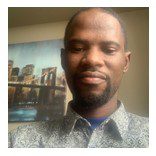 |
Adeyemi OlusolaDr. Adeyemi Olusola is an Assistant Professor at York University in the Faculty of Environmental and Urban Change. Dr. Olusola interrogates intersections between human activities and water resources from a basin perspective. His interest includes water governance, water access, flood, drought, and marginalized communities. |
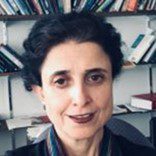 |
Anna ZalikAnna Zalik is Associate Professor in Environmental & Urban Change at York University where she teaches in the areas of global environmental politics and critical development studies. Her research, in conjunction with colleagues and community organizations, examines and critiques the political ecology and political economy of industrial extraction, with a focus on the merging of corporate security practices and social welfare interventions in strategic exporters, particularly Canada, Mexico and Nigeria. Zalik has received various grants for research on topics related to the political economy of hydrocarbons, substantive industrial transparency, and the contested regulation of extractive industries in oceans beyond national jurisdiction. Informed by this work and critiques of imperialism, her current research centers on Canadian investment in the denationalization of the Mexican energy sector, hydrocarbon politics under the TMEC/CUSMA agreement (NAFTA 2.0), and the geopolitics of deep-sea mining in international seabed, designated the ‘Common Heritage of (Hu)mankind’ under the UN Convention on the Law of the Sea (UNCLOS). |
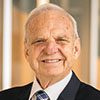 |
Charles HopkinsCharles Hopkins holds the UNESCO Chair in Reorienting Education towards Sustainability at York University. He is also Advisor to the Global RCE Network and Co-Director of the Asia-Pacific Institute on ESD (China). He has numerous publications and has lectured worldwide on a range of topics from quality education to educating for global citizenship and educating for a sustainable future. In the past, he was a teacher, principal, curriculum superintendent and regional superintendent with the Toronto Board of Education before assuming the UNESCO Chair in 1999. He has been awarded seven honorary doctorates and professorships spanning Europe, Latin America and Asia. He is a Fellow of the Royal Society of Arts in the UK, the Salzburg Global Seminar in Austria, and the Australian Association of Environmental Educators. Today, Hopkins is advisor to the United Nations University´s Global Network of Regional Centres of Expertise on ESD and Co-Director of the Asia-Pacific Institute on Education for Sustainable Development in Beijing, China. LinkedIn Charles: https://www.linkedin.com/in/charles-hopkins-esd/ |
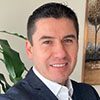 |
David Huerta HarrisDavid Huerta Harris PhD David experience includes working with public and private sector institutions in strategic initiatives that promote leadership and entrepreneurial skills development in young professionals. His teaching and start-up incubators participation has allowed him to advise several entrepreneurial and social innovation projects. Recently, he has worked with university partners and international consortiums to promote international learning and cooperation across platforms. |
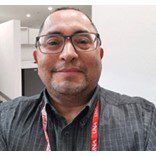 |
Douglas BarrazaDouglas Barraza is a Central American occupational and environmental health researcher based at the Universidad Nacional, Heredia Costa Rica. He is a member of the Eco-Health community of practice with the Las Nubes project, focusing on social and environmental wellbeing and also collaborates with the National Technical University at San Carlos on research projects. He also coordinates the Central American Employment and Working Surveys project, carcinogenic exposures (Craex) and has expertise in the issues of migrant work and documentation challenges. He is a Ph.D. student at the Rural Sociology Group at Wageningen University and Research Center in the Netherlands. |
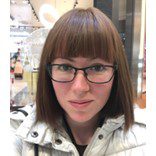 |
Elisa BertolesiDr. Elisa Bertolesi is lecturer in Structural Engineering at Brunel University London (UK). Dr Bertolesi leads a strong research group with a large emphasis on doctoral research (6 PhD students and more than 10 BSc & MSc projects per year) and strong collaborations both in the UK and overseas. Dr. Bertolesi is actively involved in different academic and administrative roles at Brunel University London (UK). Dr. Bertolesi co-organized several Engineering Open Day and Female in Civil Engineering events, Annual Review Meetings for doctoral researchers and she served as External Examiners for the Viva PhD examination at the University of Nottingham (UK). Dr. Bertolesi is Module Leader of two modules (Nonlinear Structural Analysis and Finite Element Method and Structural Design and FEA) and Module Contributor of two modules (Advanced Construction Materials and Structural Retrofitting Technology and Structural Dynamics and Seismic Design) at Brunel University London (UK). Dr. Bertolesi has actively participated in scientific divulgation in the form of: Academic seminars at the Politecnico di Milano, Open Days at the ICITECH, Research Nights in Milan and has given lectures on historic buildings to Civil Engineering students at the UPV. During past research activities, Dr. Bertolesi participated in several projects that obtained funding in open competition from the European Commission, BBVA Foundation and the Spanish State Research Agency. Her work in these projects included Structural Health Monitoring using optical sensors and full-scale experimental testing and advanced computational modelling of structures subjected to extreme events (Figure 1). Since 2018, Dr. Bertolesi has been collaborating with the spin-off company CalSens (www.cal-sens.com) and the Building Resilient Group at the Universitat Politècnica de València (Spain). Her academic profile is characterized by a high degree of international activity. To date Dr. Bertolesi has published a total of 35 papers in high-impact journals (h-index 18 – Scopus, more than 890 citations). Dr. Bertolesi has consolidated her international research network participating in International Conferences in the form of more than 31 oral presentations to date. Dr. Bertolesi chaired the Valorization of Construction and Demolition Waste for Sustainable Infrastructure Development Conference (10-11 December 2021) and she delivered a semi-plenary lecture at MuRiCo 7 2021, within the Mini symposium “Advanced computational models of Fibre Reinforced Polymer (FRP) materials applied to masonry structures” that she organized. In addition, Dr Bertolesi is peer reviewer for 17 high impact factor journals and collaborates with the editorial board of the ASCE – Journal of Composites for Construction, Scientific Reports (Springer Nature) and the International Journal of Masonry Research and Innovation. The most important recognition of her scientific achievements is her appointment as Managing Editor of the prestigious first-quartile JCR-indexed journal Construction and Building Materials. Dr Bertolesi participated as Guest Editor for the collection "Numerical Modelling Trends for Historical Masonry Structures", published by Frontiers in Built Environment (Computational Methods in Structural Engineering). Dr. Bertolesi is leading a Special Issue of the Structures journal (Elsevier) entitled "Advances in the design and simulation of masonry infilled structures under extreme loads" in collaboration with Dr. Buitrago (Universitat Politècnica de València - Spain), Prof. Ingham (University of Auckland - New Zealand) and Prof. Li (Nanyang Technological University - Singapore). |
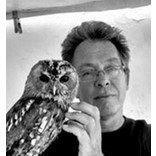 |
Felipe MontoyaFelipe Montoya is a Professor in the Faculty of Environmental and Urban Change at York University, is the Chair of Neotropical Conservation and the Director of Las Nubes Project and EcoCampus in Costa Rica. Felipe received his Ph.D. in Cultural Anthropology from the University of New Mexico, his Master’s in Tropical Plant Ecology from the Universidad de Costa Rica and his Bachelor’s in Biology from the University of New Mexico. For the last 20 years he has worked in the field of community “development” and environmental conservation in the Neo-tropics, principally in Costa Rica. |
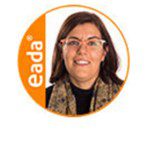 |
Isabel GarrigaIsabel Garriga is an Associate professor and Director of the corporate sustainability impact at EADA Business School in Barcelona (Spain) where she teaches sustainability courses and more, and she is also a research associate at the UNESCO Chair on Peace, Solidarity and Intercultural Dialogue (Abat Oliva CEU). She holds degrees in philosophy, economics from the University of Barcelona and a Ph.D. at IESE Business School. She has been a visiting scholar in the United States and now with York University here in Toronto, she is an editor for a journal and an expert on CSR and social impact. |
 |
James PappleJames Papple is the Associate Director at The York University English Language Institute and has over 20 years of experience in English language instruction. He has had the pleasure of working with faculty and other university partners on SDG related projects over the last five years. |
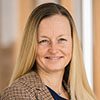 |
Katrin KohlKatrin Kohl is the Executive Coordinator and Principal Researcher at the UNESCO Chair at York University and Focal Point for SDG 4 in the Global Research Cluster at the International Association of Universities (France). Katrin is a lawyer and holds an MBA in General Management with experience in education management and strategy development in value-based institutions. For several years, Katrin Kohl was the Managing Director of the German Commission for UNESCO. With her passion for the matters of education, Katrin also served in several administrative and management positions in the fields of Higher Education and other education institutions. LinkedIn Katrin: https://www.linkedin.com/in/katrin-kohl-410/ |
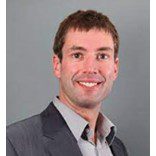 |
Kevin McMeekingKevin McMeeking is a Professor of Accounting at Brunel University and a Visiting Professor at the University of Exeter. Prior to joining Brunel, Kevin completed his undergraduate degree in Accounting and Financial Analysis at the University of Newcastle upon Tyne, a PhD in Accounting at Lancaster University and researched and taught at the University of Exeter from 1998-2020. His research interests are interdisciplinary in nature and seek to use financial analysis, financial reporting and non financial reporting to secure effective sustainable corporate governance. His teaching specialisms lie in financial accounting - at the undergraduate, postgraduate and executive levels. |
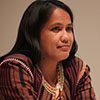 |
Leah AbayaoLeah Abayao is Professor of History at University of the Philippines Baguio (UP Baguio). She has an M.A. (Social Development Studies) and a Ph.D. (History). She is involved in the promotion and development of cultural heritage programs including community archives & museum and in indigenous people’s education in the Philippines. She was also part of the International Network on Cultural Diversity that influence the text of the current UNESCO Convention on the Protection and Promotion of the Diversity of Cultural Expressions. She writes on public history, local and ethnohistory, cultural history, indigenous worldviews, indigenous peoples’ education, and religious traditions. From 2015 - 2016 she co-curated a virtual exhibition at the Linden Museum - Stuttgart. Currently she is studying the history of collecting Indigenous Art. She also sustained her interest in the traditional knowledges of Indigenous Peoples and how these inform contemporary issues and concerns of societies. Reference: https://upb-ph.academia.edu/LeahAbayao/ |
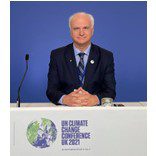 |
Mark TerryMark Terry, PhD, is a member of the Order of Vaughan, and a Fellow of the Royal Society of Canada, the Royal Canadian Geographical Society, the Dahdaleh Institute for Global Health Research, and The Explorers Club. He is also an Adjunct Professor in the Faculty of Environmental and Urban Change at York University in Toronto and at Wilfrid Laurier University in Waterloo. He is also an Associate to the UNESCO Chair in Reorienting Education towards Sustainability. |
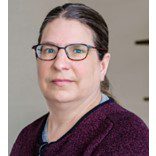 |
Mary-Helen ArmourMary-Helen Armour teaches in the Division of Natural Science and does research using near-surface structures such as impact craters. She also works on both research and development of online courses for several years as I see online education as a way to give access to more people to education. She is interested in how human wildlife interactions can be managed to allow both for human activity and conservation of wildlife. |
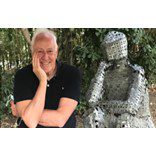 |
Mike WattsMike Watts is Professor of Education in the Department of Education at Brunel University London. He conducts ‘naturalistic’ people-orientated research principally in science education and in scholarship in higher education. He has conducted major studies in both formal and informal educational settings in the UK and abroad, and has published widely through numerous books, journal articles and conference papers. He leads in the Department on Knowledge Transfer and Knowledge Exchange, enjoys exploring new technologies for learning, and writing about creative (sometimes transgressive!) pedagogical approaches to learning and teaching. He teaches at all levels within the Department of Education and currently supervises 14 PhD students. |
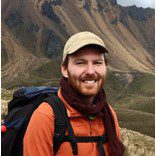 |
Patrick ClarkPatrick holds a PhD in Political Economy from the political science department at Carleton University in Ottawa, Canada. He is currently sessional assistant professor in the Business and Society program at York University in Toronto, Canada. Patrick’s doctoral dissertation analyzed the relationship between public policies for rural development and transition processes to sustainable agricultural production led by smallholder farmer co-operatives in Ecuador. The research employed process tracing methods to compare the relationships between three small farmer organizations in promoting sustainable agricultural production (organic and agro-ecological farming methods) and different government institutions tasked with implementing rural development policies in Ecuador between 2006 and 2016. In recent years, he has begun to research rural development and peasant livelihoods in Peru and in the future intends to do comparative historical research on the long-term impacts of the 1970s agrarian reform processes and rural social organization in both countries. He is currently completing a co-authored study on the history of the Norandino Agrarian Co-operative of organic coffee, cacao and sugar producers based in Piura, in northern Peru and in relation to the Fair Trade movement. He is also working on several co-authored publications on the impacts of COVID-19 on rural livelihood strategies in Junín, in the central highlands of Peru. |
 |
Philip KellyPhilip Kelly is a Professor of Geography and Associate Dean for Research, Graduate and Global Affairs at the Faculty of Environmental & Urban Change, York University. His research and teaching focus on uneven geographies of economic activity, processes of global labour migration, and the economic integration of immigrants. He has a longstanding commitment to research in the Philippines and Southeast Asia, and has also worked extensively on immigration issues in Canada. His current research focuses on how transnational ties forged by migration between the Philippines and Canada foster alternative economic and political practices in both places. A new project is currently examining the work of migrant labourers in the fishing fleets of East and Southeast Asia. |
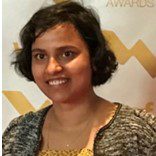 |
Rama PulicharlaRama Pulicharla holds a bachelor's degree in pharmacy and a master’s degree in the field of pharmaceutical sciences. She pursued her Ph.D. in the water science field at Institut National de la Recherche Scientifique (Eau, Terre et Environnement, INRS-ETE, Université du Québec, Canada) and published many peer-reviewed articles on the development of analytical methods, and degradation of emerging contaminants in water sources. She is currently a postdoctoral researcher at York University, Canada, continuing her research on emerging contaminants. Her research interests include Environmental chemistry; Emerging contaminants: Monitoring, and Green treatment technologies. |
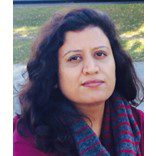 |
Sadia MalikSadia M. Malik is an Assistant Professor of Economics at York University. She holds a PhD degree in Economics and has more than 15 years of professional experience in pedagogy and applied research. Her research interests include comparative international development and Health Economics. Dr. Malik holds diverse professional experience that includes research, teaching, and policy advocacy. At York University, she teaches various courses in economics. Dr. Malik has also won two research grants: one from Social Science and Humanities Research Council (SSHRC) and the other from Dahdaleh Institute of Global Health Research, Canada. Prior to her appointment at York University, she has worked as Research Director at the Human Development Centre, based in Pakistan. As an independent consultant in international development, she has won several research grants from various international development agencies and has published her work in several forms including refereed journal articles, research reports, policy briefs and op-ed articles for the newspapers. |
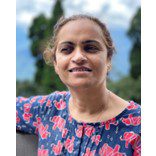 |
Satinder k. BrarProf. Satinder Kaur Brar is the James and Joanne Love Chair in Environmental Engineering at York University. Her research is on the intersecting areas of environmental engineering and its impact on the overall well-being of the global community. She primarily works in the two converging fields of value-addition of wastes and removal of emerging contaminants. Many national and international awards and honors have been bestowed on her that prove her research mettle. Notable ones being, in 2021, Best paper award, and in 2019, Eddy Principles/Processes Wastewater Medal winner, honored by the Water Environment Federation; in 2017, her research on “Novel and Advanced Hybrid Oxidation and Enzymatic Technologies for Emerging Trace Environmental Contaminants” were awarded the Grand Prize in University Research for Excellence in Environmental Engineering and Science by the American Academy of Environmental Engineers and Scientists (AAEES). She was recently inducted into the European Academy of Sciences in 2021 and as well is a member of the College of New Scholars, Scientist and Artists of the Royal Society of Canada, since 2014. She leads the Bioprocessing and NanoEnzyme Formulation Facility (BANEFF) at York University and this unit has successfully led to the training of 72 HQP (including 45 undergraduates and summer interns). Currently, she is supervising 4 PDFs, 2 research associates, one research assistant, 15 Ph.D.s and 2 M.Scs. She has published more than 400 articles, edited 12 books and at least 55 invited talks to her credit. |
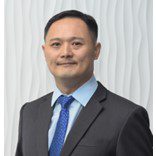 |
Sian Lun LauDr.-Ing. Sian Lun Lau Dr. Sian Lun Lau received his Dr.-Ing. and MSc in Electrical Communication Engineering from the University of Kassel, Germany. He also holds a BEng with Hons in Electronics and Telecommunications Engineering from Universiti Malaysia Sarawak (UNIMAS). During his nine years (2004 – 2013) as a researcher at the Chair for Communication Technology (ComTec) at the University of Kassel, he has worked and managed various German National- and EU-funded research projects. Among them are EU IST-MobiLife, ITEA S4ALL, BMBF MATRIX and EU-SEAM4US. He joined Sunway University, Malaysia in February 2013 as a senior lecturer and Head of the Department of Computing and Information Systems until March 2021. He is currently a Professor and the Head of the Department of Engineering. In the same year, he has taken up the new role as the Associate Dean (Internationalization). He is currently a senior member of the Institute of Electrical and Electronics Engineers (IEEE) and serves as the IEEE Computer Society Malaysia Chapter secretary for term 2021/2022. His research interests include ubiquitous computing, sustainable smart city, context-awareness and applied machine learning. At Sunway University, he continues to acquire both internal and external research fundings in Malaysia (total funding since 2013 around RM2.71 million). Recent research projects include DeepSpray+, SustHack and ProtoPolicyAsia. |
 |
Trevor VandenBoerDr. Trevor VandenBoer is an Assistant Professor in Environmental Analytical Chemistry. His research program in the Department of Chemistry at York University is investigating reactive nitrogen atmospheric chemistry within the Atmospheric Chemistry Laboratory. He is currently supported by the Natural Sciences and Engineering Research Council of Canada, the Alfred P Sloan Foundation Chemistry of the Indoor Environment program to develop new analytical techniques for quantitative speciation of reactive nitrogen, and Environment and Climate Change Canada to quantify the deposition of ionogenic species in to at-risk whale habitat. The group is growing with these projects and more! See ‘What We Do’ and ‘Projects/Join the Group’ for more information. Prior to his current position Trevor held a Banting Postdoctoral Fellowship with Prof. Susan Ziegler at Memorial University in St. John’s, Newfoundland where he examined the biogeochemical interactions of reactive nitrogen exchanged across the biosphere-atmosphere interface. He obtained an MSc (2008) and PhD (2012) in Environmental and Atmospheric Chemistry with Prof. Jennifer Murphy from the University of Toronto. In 2007 Trevor completed a combined Honours Bachelor of Science with Prof. James Watterson in Analytical Chemistry and Forensic Science from Laurentian University in Sudbury, Ontario. |
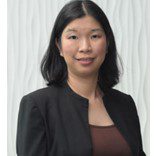 |
Tze Ying SimSim Tze Ying currently heads the Centre for American Education of Sunway University. Dr Sim holds a Doctorate of Engineering Degree (Magna Cum Laude) from the University of Kassel, Germany, where she was also a researcher and teaching assistant for seven years. During her time in Germany, subjects covered by her included Embedded System, Automotive Programming, and Software Tools for Engineering. She acquired her Master of Science degree from Universiti Putra Malaysia, specialising in Software Engineering, and has worked in Motorola Semiconductor Malaysia for about five years as a System Engineer. Her research areas include process change management, digital transformation, and engineering education. She enjoys teaching and continues to experiment with different technologies and methods to enhance teaching and learning engagement. She believes that quality education should be available for all. One of her initiatives is to provide programming skills without using a computer. Interested collaborators can reach her at tzeyings@sunway.edu.my |
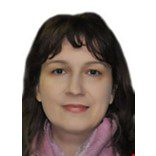 |
Valentina StojceskaProfessor at the Brunel University London. She has a PhD in Food Engineering |
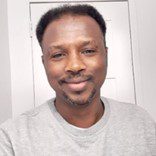 |
Woldegebriel Assefa WoldegerimaIn-host modelling, infectious disease modelling and prediction; Modelling the impact of climate change on infectious disease dynamics; Machine learning approaches for modelling and disease prediction; Data analysis and fitting in Python, and I am enthusiastic to diversify my research to neural differential equations. I am a newer faculty member as an Assistant Professor at the Department of Mathematics and Statistics at York University as of July 2021. Before my recruitment to York University, I was a Postdoctoral Research Fellow at the Mathematical Models and Methods in Biosciences and Bioengineering Lab at the University of Pretoria, South Africa. I obtained my Ph.D. in mathematical modelling of the immunopathogenesis of in-host dynamics, from the University of Buea, Cameroon in a collaboration with Lehigh University in the USA. I have earned two master’s degrees: one from the African Institute for Mathematical Sciences (AIMS) with a master's thesis in partial differential equations, and a second master of science degree from Addis Ababa University in Ethiopia in Functional Analysis. My ResearchGate’s website: https://www.researchgate.net/profile/Woldegebriel-Assefa-Woldegerima-2 My York U personal website: https://www.yorku.ca/professor/waw/ Contact email: wassefaw@yorku.ca |
Pilot Year (2021-2022)
Ordered alphabetically by first name.
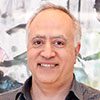 |
Alidad AmirfazliBefore joining the York University as the founding Chair of the Department of Mechanical Engineering, Alidad Amirfazli held the Canada Research Chair in Surface Engineering at the University of Alberta, Canada. Amirfazli has produced exciting results in wetting behavior of surfaces, drop adhesion and shedding, understanding and application of super-hydrophobic coatings. He has more than 250 scientific contributions, many in prestigious peer reviewed journals; he was the Editor for the Advances in Colloid and Interface Science (IF 9.9) till Dec 2020, and an Editorial board member of other journals. Dr. Amirfazli has been the recipient of the Martha Cook Piper Research prize, Killam Annual Professorship, and Petro-Canada Young Innovator Award. He also served in the board of Professional Engineers of Alberta, and been a consultant with various companies in USA, Europe, and Canada. In 2014 Dr. Amirfazli became an inaugural member of the Royal Society of Canada’s New College of Scholars, Artists, and Scientists. In 2015 Dr. Amirfazli was elected as the President of the Royal Society of Canada’s New College of Scholars, Artists, and Scientists. Dr. Amirfazli was recognized as a Fellow of Engineering Institute of Canada due to his excellent contribution to engineering in Canada. |
|
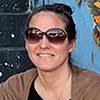 |
Ana Maria MartinezAna María Martínez is the Associate Director of Las Nubes EcoCampus in Costa Rica. In her role, she has helped to develop and expand experiential education programs at Las Nubes since 2016 and facilitated the development of interdisciplinary and international research collaborations, including the Grounded Project. She has a Ph.D. in Education and a Master’s in Environmental Studies from York University, a Specialization in Environmental Law (Externado of Colombia University) and a Bachelor’s in Marine Biology (Jorge Tadeo Lozano University). Her academic work has explored how policy and praxis influence climate change curricula enactments in higher educational institutions in Canada; and the linkages between sustainability, climate change and biodiversity in the Tropics. |
|
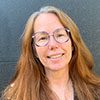 |
Carolyn SteeleCarolyn is a York graduate herself, earned her PhD in Communication & Culture and specializes in interactive media used for educational purposes inside and outside the university. She teaches courses related to digital culture and experiential education, including capstone courses and received both the LA&PS Dean’s Award for Excellence in Teaching and the Humanities Award for Excellence in Teaching in 2019-20. In addition, she has received multiple awards and recognition for her innovation in educational programming, course design and interactive educational media. She is passionate about experiential education, interactive and immersive technologies and creative approaches to urgent problems. She is particularly excited about participating in the Go Global SDGs in Action Student Challenge because she believes its focus on interdisciplinary problem solving is essential to tackle the complex issues we are facing in the 21st century. |
|
 |
Charles HopkinsCharles Hopkins holds the UNESCO Chair in Reorienting Education towards Sustainability at York University. He is also Advisor to the Global RCE Network and Co-Director of the Asia-Pacific Institute on ESD (China). He has numerous publications and has lectured worldwide on a range of topics from quality education to educating for global citizenship and educating for a sustainable future. In the past, he was a teacher, principal, curriculum superintendent and regional superintendent with the Toronto Board of Education before assuming the UNESCO Chair in 1999. He has been awarded seven honorary doctorates and professorships spanning Europe, Latin America and Asia. He is a Fellow of the Royal Society of Arts in the UK, the Salzburg Global Seminar in Austria, and the Australian Association of Environmental Educators. Today, Hopkins is advisor to the United Nations University´s Global Network of Regional Centres of Expertise on ESD and Co-Director of the Asia-Pacific Institute on Education for Sustainable Development in Beijing, China.
LinkedIn Charles: https://www.linkedin.com/in/charles-hopkins-esd/ Twitter Charles: https://twitter.com/hopkinschuck/ and #Sustainability4Ed 📚 All UNESCO Chair: Facebook: https://www.facebook.com/hopkinsesd/ Instagram https://www.instagram.com/unesco.chair/ Website: https://unescochair.info.yorku.ca/ YouTube: https://www.youtube.com/channel/UC3NWoT-9DhUyquYEtAieiqw |
|
 |
Cheryl van Daalen-SmithDr van Daalen-Smith is a registered nurse and academic at York University, with appointments in the school of Gender, Feminist and Women’s Studies; the School of Nursing; and the Children, Childhood and Youth Studies program. She is currently serving as a Provostial Fellow at York University tasked with mobilizing the infusion of the Sustainable Development Goals across the university and across disciplines and faculties. She is an avid supporter of Globally-Networked learning and the benefits of globalizing classrooms. |
|
 |
David Huerta HarrisDavid Huerta Harris PhD International Experiences and Models Director Tecnológico de Monterrey David Huerta is Director of International Experiences and Models at Tecnologico de Monterey and has taught at the Business School throughout his career. He holds a PhD in Business from the University of Hull U.K. His Master in Administration degree with a Strategic Planning concentration and his B.A. in Industrial and Systems Engineering are both from Tecnológico de Monterrey. He served as Short-Term Mobility Director that included overseeing 400+ study-abroad programs and directing the “Summer School” providing educational and career development opportunities in Mexico for international students. Previously he served for five years as Tecnologico de Monterrey's International Liaison Office Director at Yale University. While at Yale, he worked closely with the Center for Professional and International Experience, International Affairs Office and Yale School of Management. Before, David served at the campus level as Undergraduate Academic Dean, Business and Administration Program Director and Students Affairs Director. David experience includes working with public and private sector institutions in strategic initiatives that promote leadership and entrepreneurial skills development in young professionals. His teaching and start-up incubators participation has allowed him to advise several entrepreneurial and social innovation projects. Recently, he has worked with university partners and international consortiums to promote international learning and cooperation across platforms. |
|
 |
Elvira Margarita Lora PenaPerfil Elvira Margarita Lora Peña Feminista, periodista, maestra y productora transmediática Elvira Margarita Lora Peña es doctora en Comunicación y Periodismo de la Universidad Autónoma de Barcelona, con titulación «Sobresaliente», por su investigación sobre la primera revista feminista dominicana: «Fémina» (1920-1940). De ahí surge la plataforma feminista @republicafemina Tiene una maestría en Enseñanza Superior de la Universidad Autónoma Santo Domingo; un postgrado en Relaciones Públicas y una licenciatura en Comunicación Social de la Universidad Católica Santo Domingo. Es diplomada en Periodismo de Investigación de la Universidad de San Diego, California; de Comunicación y Género por la UASD, y posee un diploma superior en Diversidad Sexual y Derechos Humanos FALGBT de la CLACSO. Desde hace más de 20 años, ejerce el Periodismo en diferentes áreas que abarcan prensa escrita, en especial la edición de revistas y la investigación periodística; por igual, ha ejercido en el área audiovisual y digital, de alcance nacional e internacional. Fue miembra de la Comisión Fílmica Dominicana de DGCine y columnista del periódico Hoy (secciones «Opinión» y «Areíto»), sobre temas feministas. Dentro de su amplia experiencia laboral, ejerció como directora académica del Departamento de Comunicación Social de la Pontificia Universidad Católica Madre y Maestra (2007-2018). En 2014 ingresó a la carrera académica de PUCMM con el rango de «Profesor Instructor», y se desarrolla como docente de las áreas de Periodismo e Investigación de la Comunicación. También, es facilitadora en el área de Comunicación Audiovisual de INFOTEP, de Periodismo del Centro Bonó y de Comunicación Estratégica de la UASD. En el área de Comunicación Institucional se ha desempeñado como Coordinadora de IEC de Conapofa, directora de Comunicación del Consejo Nacional de Competitividad y, en la actualidad, del Ministerio de Economía, Planificación y Desarrollo. Elvira Margarita Lora Peña’s profile Feminist, journalist, teacher and transmedia producer Elvira Margarita Lora Peña has a doctorate in Communication and Journalism from the Autonomous University of Barcelona, with an "Outstanding" degree, for her research on the first Dominican feminist magazine: "Fémina" (1920-1940). Hence the feminist platform @republicafemina She has a master's degree in Higher Education from the Autonomous University of Santo Domingo; a postgraduate degree in Public Relations and a degree in Social Communication from the Universidad Católica Santo Domingo. She has a degree in Investigative Journalism from the University of San Diego, California; Communication and Gender from the UASD, and has a higher diploma in Sexual Diversity and Human Rights FALGBT from CLACSO. For more than 20 years, he has been practicing journalism in different areas that include the written press, especially magazine publishing and journalistic investigation; equally, he has worked in the audiovisual and digital area, nationally and internationally. She was a member of the Dominican Film Commission of DGCine and a columnist for the newspaper Hoy ("Opinion" and "Areíto" sections), on feminist issues. Within her extensive work experience, she served as academic director of the Department of Social Communication at the Pontificia Universidad Católica Madre y Maestra (2007-2018). In 2014 he entered the academic career of PUCMM with the rank of "Professor Instructor", and develops as a teacher in the areas of Journalism and Communication Research. Also, she is a facilitator in the area of Audiovisual Communication of INFOTEP, of Journalism of the Bonó Center and of Strategic Communication of the UASD. In the area of Institutional Communication, she has served as Coordinator of the IEC of Conapofa, Director of Communication of the National Competitiveness Council and, currently, of the Ministry of Economy, Planning and Development. |
|
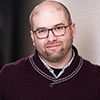 |
Ian GarrettIan Garrett is a designer, producer, educator, and researcher in the field of sustainability in arts and culture. He is the director of the Centre for Sustainable Practice in the Arts and Associate Professor of Ecological Design for Performance at York University, where he is Graduate Program Director for Theatre and Performance Studies. He is also producer for Toasterlab, a mixed reality performance collective. He maintains a design practice focused on ecology, accessible technologies and scenography. Notable projects related to EcoScenography include the set and energy systems for Zata Omm's Vox:Lumen at the Harbourfront Centre and Crimson Collective’s Ascension, a solar 150’ wide crane at Coachella. With Chantal Bilodeau, he co-directs the Climate Change Theatre Action. His writing includes Arts, the Environment, and Sustainability for Americans for the Arts; The Carbon Footprint of Theatrical Production in Readings in Performance and Ecology, and Theatre is No Place for a Plant in Landing Stages from the Ashden Directory. He serves on the Board of Directors for Associated Designers of Canada, was the Curator for the US for the 2019 Prague Quadrennial, and is co-chair for World Stage Design 2022 in Calgary. |
|
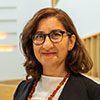 |
Idil BoranIdil Boran is associate professor of philosophy and member of faculty at the Dahdaleh Institute for Global Health Research at York University. Idil Boran is also Associate Director of CIFAL York, the UN-level research and training centre at York University. Specializing in interdisciplinary research and cross-sectoral outreach and partnerships, Idil's research focuses on global environmental governance with focus on climate, nature, and health interlinkages. At the Dahdaleh Institute for Global Health Research, Idil leads the Synergies of Planetary Health Research Initiative & Lab. With nearly 10 years of experience at the UN Climate Change meetings as an observer and Head of Delegation for York University, Idil Boran attended COP26 where she led a multi-stakeholder side event. Idil Boran has certification from the United Nations Institute for Training and Research (UNITAR) on strengthening stakeholder engagement for the implementation of review of the 2030 Agenda and the Sustainable Development Goals and is the author of Political Theory and Global Climate Action: Recasting the Public Sphere (Routledge, 2019). |
|
 |
James PappleJames Papple is the Associate Director at The York University English Language Institute and has over 20 years of experience in English language instruction. He has had the pleasure of working with faculty and other university partners on SDG related projects over the last five years. |
|
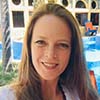 |
Julie HardAs a global health and global program development professional, Julie Hard (MScPT) is the International Relations Manager for the Faculty of Health at York University. She is responsible for building and managing programs designed to foster international partnerships between York University and institutions for meaningful impact, promoting healthy lives and well-being. Her position supports senior level undergraduate and graduate students as well as faculty to engage in meaningful international programs and to assist in applying academic activities towards global issues in the workplace and in research settings. Prior to York University, Julie Hard led two international non-governmental organizations for almost a decade in Haiti, coordinating a variety of programs focusing on health infrastructure strengthening, emergency and disaster response and capacity building among highly vulnerable communities. From this experience, Julie brings a broad range of technical management skills as well as skills needed to collaborate with a variety of institutional and community stakeholders. |
|
 |
Jose EtcheverryDr. Jose Etcheverry is an Associate Professor with the Faculty of Environmental and Urban Change. He is the Co-Chair of the Sustainable Energy Initiative (SEI) and the Director of the International Renewable Energy Academy (IREA). His work is focused on addressing the climate change crisis by developing –locally and international- an ecosystem of innovation focused on providing new practical opportunities for those interested in designing and implementing paradigm-shifting climate change solutions. To achieve the above, he has joined the Board of Governors and the Senate of York University where he focuses on achieving a carbon-free university that can provide a world-class destination to enable learning by doing on how to solve climate change emergency declared by the Canadian Federal Government. |
|
 |
Katrin KohlKatrin Kohl is the Executive Coordinator and Principal Researcher at the UNESCO Chair at York University and Focal Point for SDG 4 in the Global Research Cluster at the International Association of Universities (France). Katrin is a lawyer and holds an MBA in General Management with experience in education management and strategy development in value-based institutions. For several years, Katrin Kohl was the Managing Director of the German Commission for UNESCO. With her passion for the matters of education, Katrin also served in several administrative and management positions in the fields of Higher Education and other education institutions.
LinkedIn Katrin: https://www.linkedin.com/in/katrin-kohl-410/ Twitter Katrin: https://twitter.com/KatrinKohl410 and #Sustainability4Ed 📚 |
|
 |
Leah AbayaoLeah Abayao is Professor of History at University of the Philippines Baguio (UP Baguio). She has an M.A. (Social Development Studies) and a Ph.D. (History). She is involved in the promotion and development of cultural heritage programs including community archives & museum and in indigenous people’s education in the Philippines. She was also part of the International Network on Cultural Diversity that influence the text of the current UNESCO Convention on the Protection and Promotion of the Diversity of Cultural Expressions. She writes on public history, local and ethnohistory, cultural history, indigenous worldviews, indigenous peoples’ education, and religious traditions. From 2015 - 2016 she co-curated a virtual exhibition at the Linden Museum - Stuttgart. Currently she is studying the history of collecting Indigenous Art. She also sustained her interest in the traditional knowledges of Indigenous Peoples and how these inform contemporary issues and concerns of societies. Reference: https://upb-ph.academia.edu/LeahAbayao/ |
|
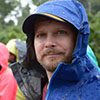 |
Martin BunchMartin Bunch is a Professor in the Faculty of Environmental and Urban Change at York University. A human geographer by training, his research interests fall in the areas of in environmental management, systems theory and methodology, and environment and health. The integrating theme among these is coupled human and natural systems, or social-ecological systems. Prof. Bunch has methodological expertise in adaptive management, soft systems methodology, ecosystem approaches, and geographic information systems (GIS) and brings these together in the application of ecosystem approaches to human health and well-being (the ecohealth approach). Bunch’s current and recent projects include the Ecological Footprint Initiative at York University; Quantifying absorptive, adaptive and transformative resilience of households in South Sudan with respect to food security (with World Vision); and development of a web-distributed GIS and Agent-based model to demonstrate links between ecosystems and human health in the Credit River Valley. Bunch also collaborates on the “Las Nubes” Project in Costa Rica, where he works with University partners and local stakeholders to develop a biological corridor and improve human well-being in a watershed near San Isidro. Past work includes applied projects in Chennai, India related to urban environmental management and poverty alleviation that informed the ecosystem approach using soft systems methodology and participatory action research. |
|
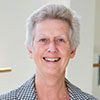 |
Norma Sue Fisher-StittNorma Sue Fisher-Stitt is a professor in the Department of Dance at York University, where she teaches dance education and dance history. She is co-chair of the 2022 dance and the Child international (daCi) conference which includes SDG sessions. |
|
 |
Philip KellyPhilip Kelly is a Professor of Geography and Associate Dean for Research, Graduate and Global Affairs at the Faculty of Environmental & Urban Change, York University. His research and teaching focus on uneven geographies of economic activity, processes of global labour migration, and the economic integration of immigrants. He has a longstanding commitment to research in the Philippines and Southeast Asia, and has also worked extensively on immigration issues in Canada. His current research focuses on how transnational ties forged by migration between the Philippines and Canada foster alternative economic and political practices in both places. A new project is currently examining the work of migrant labourers in the fishing fleets of East and Southeast Asia. |
|
 |
Rahul Arora
Dr. Rahul Arora is an Assistant Professor in the Department of Economics & Finance, Pilani Campus, BITS Pilani, India. He has completed his Ph.D. in Economics from the Department of Economic Sciences, IIT Kanpur, India in the year 2017 with the specialization of evaluation of the impact of mega-trade deals in the Asia-Pacific Region. He has worked as a Policy Analyst for two years at the CUTS International – Jaipur which is closely working with the Government of India as a think tank on various policy issues. As a policy analyst, he has worked with UNESCAP, Asian Development Bank, USAID, and UK-DFID as a lead researcher in their funded project to the CUTS International in various domains such as Food Security, Gender dimensions to international trade. His contribution is acknowledged in the project reports published online. At present, he is teaching basic as well as advanced level courses to undergraduate and post-graduate students at BITS Pilani, Pilani campus. He is also guiding Masters and Ph.D. students in areas related to applied economics such as global value chains and quality of economic growth, the economic cost of the prevalence of non-communicable diseases, climate-smart goods, among others. Currently, he is also co-supervising a Ph.D. student working on Water Poverty in India and the Impact of Climate change. He has published various research papers in journals of national and international repute. He has also published two edited books, a working paper, and a briefing paper with internationally reputed publishers/institutes. |
|
 |
Silvia Emperatriz GuzmánCoordinator of Promotion, Communication and Solidarity Crafts since 2021 In 2016 Silvia was part of an International Exchange Program in USA. There She had the opportunity to take ESL classes in North Virginia Community College, meanwhile, Silvia was learning the American culture. She graduated in 2017 from University of El Salvador in Education Sciences, afterward; she worked at the same University as an Administrator Assistant for The Europe Union project and Distance Education program. Additionally, Silvia has participated in different International Human Rights Events working with the Advocacy Department of University of El Salvador. During her major practices, she became in contact with CIS projects and she grew interest of being part of it someday. |
|
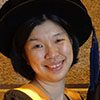 |
Sim Tze YingSim Tze Ying currently heads the Centre for American Education of Sunway University. Dr Sim holds a Doctorate of Engineering Degree (Magna Cum Laude) from the University of Kassel, Germany, where she was also a researcher and teaching assistant for seven years. During her time in Germany, subjects covered by her included Embedded System, Automotive Programming, and Software Tools for Engineering. She acquired her Master of Science degree from Universiti Putra Malaysia, specialising in Software Engineering, and has worked in Motorola Semiconductor Malaysia for about five years as a System Engineer. Her research areas include process change management, digital transformation, and engineering education. She enjoys teaching and continues to experiment with different technologies and methods to enhance teaching and learning engagement. She believes that quality education should be available for all. One of her initiatives is to provide programming skills without using a computer. Interested collaborators can reach her at tzeyings@sunway.edu.my |
|
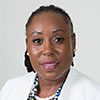 |
Sophia Greaves-BroomeChief Executive Officer Pinelands Creative Workshop - Barbados Sophia, through the Pinelands Creative Workshop – A 44 year old NGO Organisation in Barbados, have been involved in Community, Youth Development, Cultural and Project Management and Event Planning over the last 30 years. In her role as Special Project Director, she has managed small, medium and large scale development programs and projects focusing on economic empowerment, cultural preservation and development and human capital development. She has had the opportunity to provide service to UNDP, UNICEF, UNESCO, UNIFEM, and OAS via consultancies/missions to analyze and offer practical recommendations using the PCW model to aid in the rehabilitation of urban communities in the OECS. She received her designation as a Certified Administrative Manager and Event Planning and Promotion through Cambridge with distinction in 2003. In 2013 she successfully completed the Certificate in Non-Governmental Organization Management offered by the UWI – Open Campus and funded by the Non State Actors Panel of Barbados. Then in 2016 through the Inter-American Development Bank/INDES/PM4 she earned the designation of Project Management Associate. That same year she also completed the TVET Council Level 4 Assessor Training. Sophia also holds a MBA in Business Psychology with the University of South Wales and professional membership with the Canadian Institute of Certified Administrative Managers (CICAM) and with the Alumni of the Canada Caribbean Emerging Global Leaders Dialogue. |
Funded by the Government of Canada’s Outbound Student Mobility Pilot Program Global Skills Opportunity (GSO).

